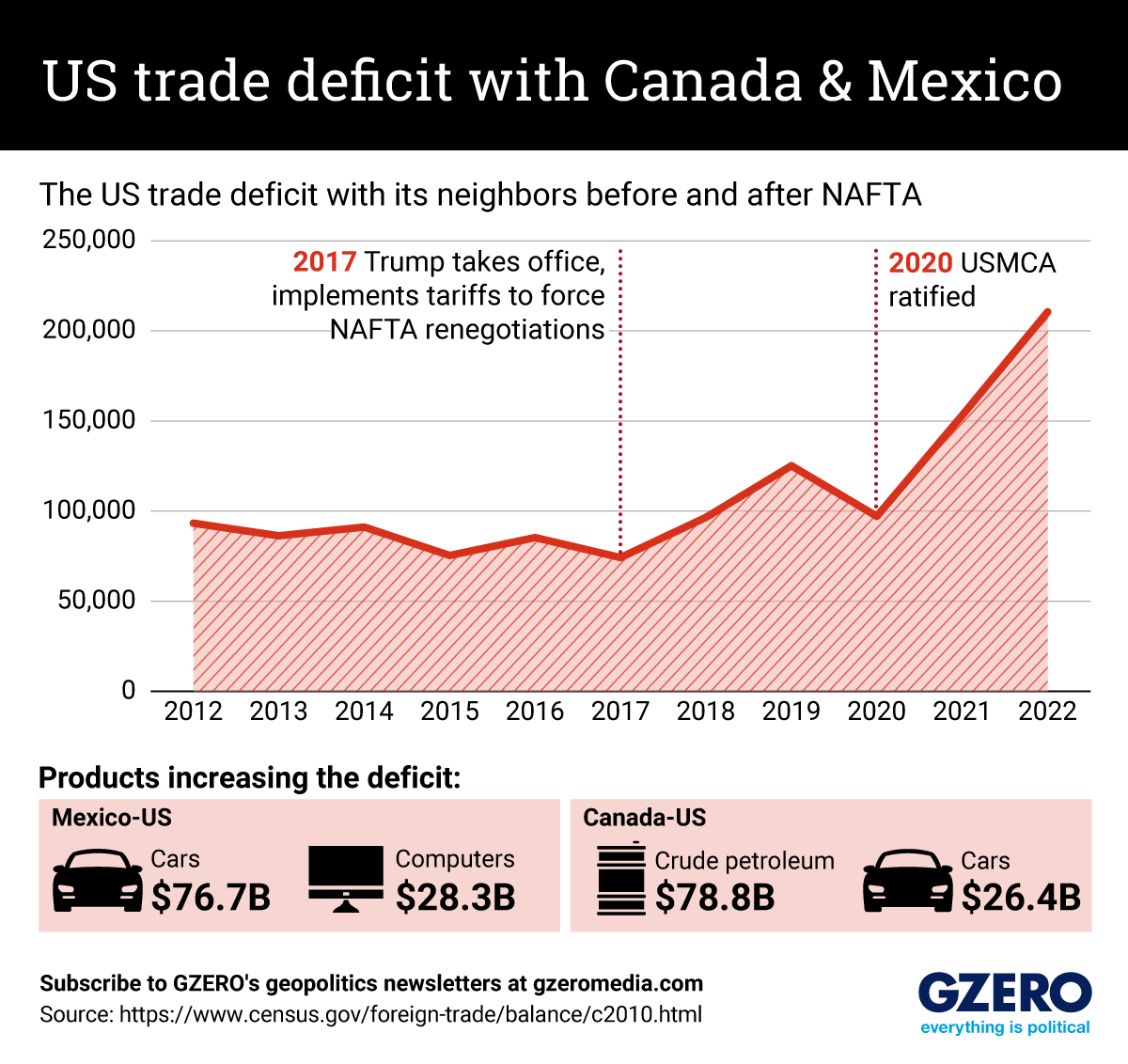The Graphic Truth: US trade deficit with Canada & Mexico
In 2016, Donald Trump successfully mobilized his base around NAFTA being “the worst trade deal ever signed.” He argued that US industries were being suppressed by trade deficits with Canada and Mexico, and he promised to disband the agreement if elected.
Mexico was also under pressure for renegotiation. While NAFTA turbocharged Mexican agricultural and manufacturing sectors, many thought Mexico was too reliant on the US importing its products, putting its economy at the mercy of international food prices and exchange rates.
When Trump won the presidency, he kept his promise and called for the trade deal to be renegotiated. The promise he didn’t keep: lowering the trade deficit.
The law of the land now is the United States-Mexico-Canada Agreement, or USMCA, which still gives Canada and Mexico sweeping access to export products to the US. Trade deficits aren’t inherently negative as they help consumers benefit from cheaper goods, but domestic industries do struggle in the face of increased competition.
We look at how the US trade deficit with Mexico and Canada has grown since NAFTA was disbanded.
